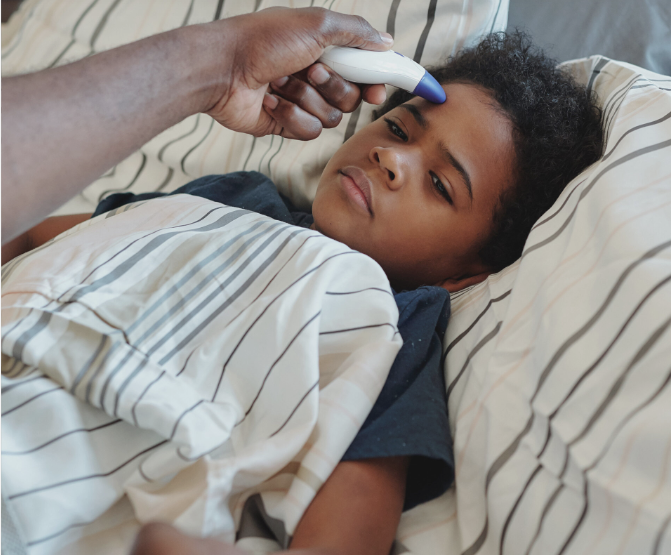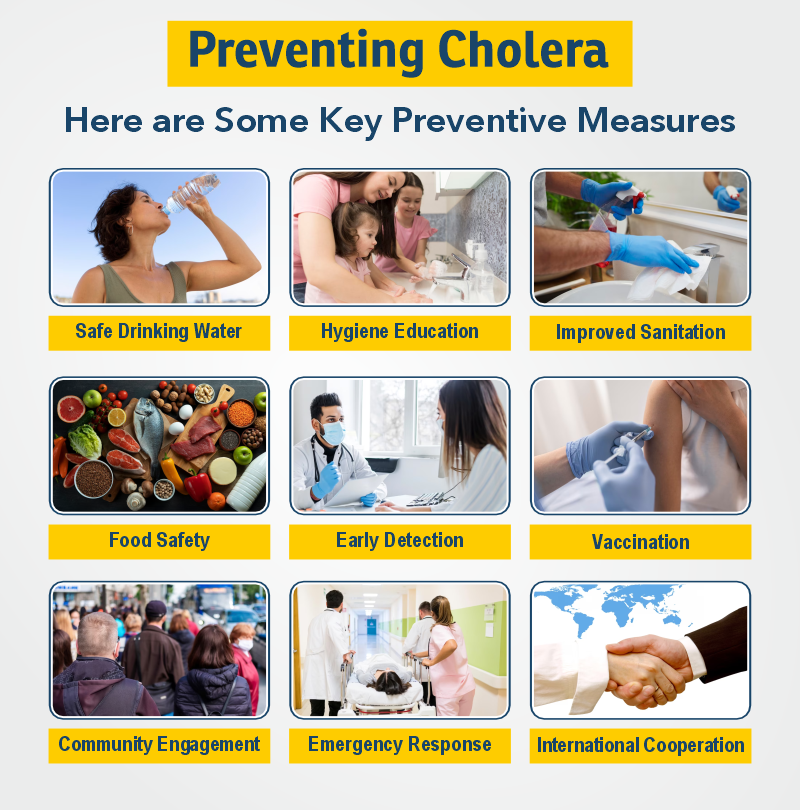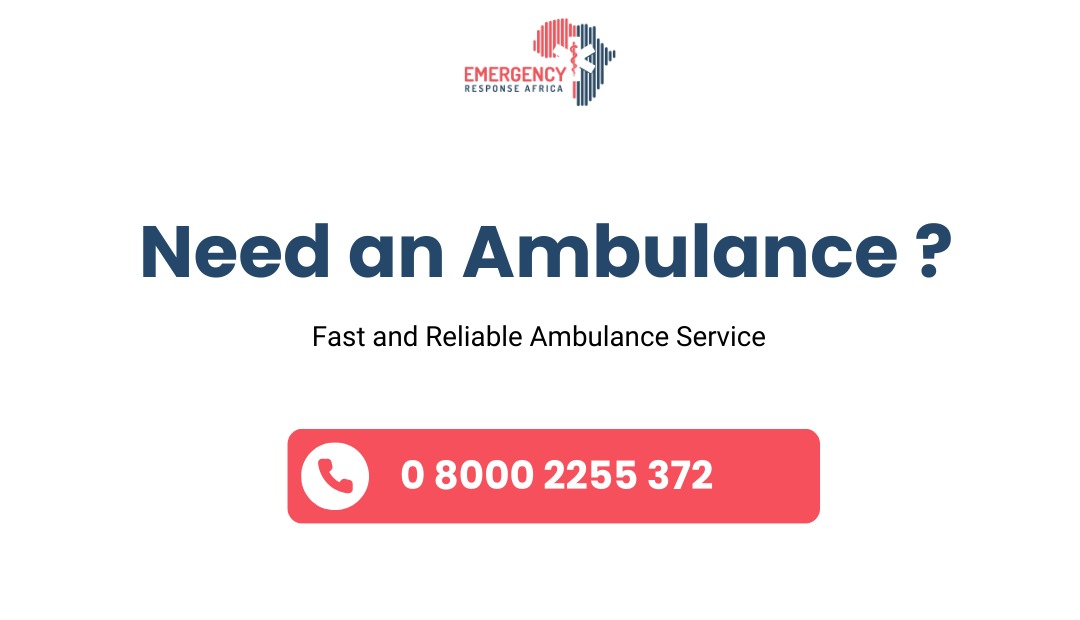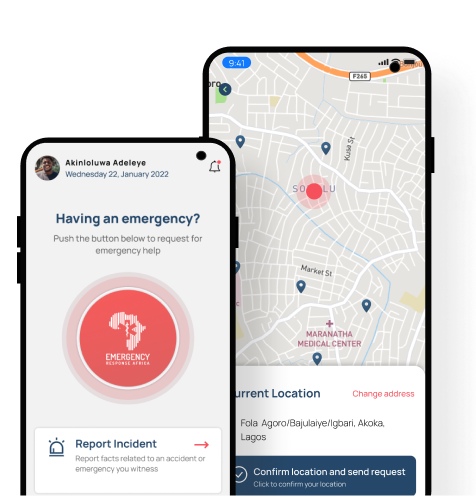Cholera is a condition that leads to dehydration of body fluid and, if not treated, may lead to death. There are different stages, mild and severe. The symptoms can last from 12 hours to about five days. The first aid treatment for cholera is administering ORS (oral rehydration salts) to the patient by the caregiver or victim, which helps reduce dehydration. That medical intervention should be called to improve the patient’s chance of survival.
What is Cholera
It is caused by the bacterium Vibrio cholera, which enters the body by ingesting food or water. It is primarily common in less developed regions with poor sanitation and clean water like Africa, Asia and Latin America. Most people with cholera have few or no symptoms, but some will experience watery diarrhoea, loss of body fluid and overall dehydration. It can be fatal and threatens social development.
Symptoms and Signs of Cholera Disease
According to WHO, over 140,000 deaths are recorded as a result of cholera in over 4 million cases yearly, with less than 15% becoming severe. The chances of the signs of cholera being mistaken for other diarrhoea-related diseases or water-borne diseases are high. One way to diagnose it is by taking a sample of the victim’s stool and running some lab tests. However, when you suspect cholera symptoms, then there is no need to take chances but start treatment immediately; the signs and symptoms are:
- Onset Diarrhoea
- Constant Vomiting
- Nausea Feeling
- Dehydration (Mild to Severe)
- Low blood pressure
- Sunken Eyes
- Tiredness
- Unstable heartbeat rate
- Dry mouth
- Shivered skin
- Reduced urine excretion
- Need to drink water
- Muscle cramps
RELATED SERVICES
Cholera Symptoms in Children

- Drowsiness in the child
- Severe fever
- Convulsions
- Coma
Causes of Cholera
Food and water are often contaminated with human waste due to poor hygiene and sanitation.
They are also caused by eating raw food or not properly cooked food, especially seafood like shellfish and other seafood.
Moreover, poorly irrigated vegetables contaminated by water sources are also a common cause of cholera.
In the case of internally displaced camps, refugee centres or communities with poor sanitation and a single person affected, it can contaminate the water of the entire population.
Where there are serious complications, it could lead to severe dehydration and shock; then, if not taken seriously, it can lead to kidney failure and low potassium.
First Aid Treatment For Cholera
Cholera demands immediate treatment, as the disease can lead to death within hours. This urgency underscores the need for proactive measures.
- Rehydration
Replace lost fluid with oral rehydration salts (ORS) or simple salt solution to replenish lost fluid. ORS is crucial in treating cholera as it helps restore the body’s lost fluids and electrolytes. The ORS solution is a mixture of salt and sugar dissolved in boiled or bottled water.
Rehydration is a life-saving intervention for cholera. Without it, approximately half the people with cholera die. However, with treatment, fatalities drop to less than 1%, offering hope and reassurance. You can drink safe water, broth, or other fluids if you don’t have ORS. Do not drink drinks with high sugar, like juice, soft drinks, or sports drinks. Sugary drinks can make diarrhoea worse. Babies with watery diarrhoea should continue to be fed breast milk or formula to help them stay hydrated.
ORS powder is available in many pharmacies and stores. During cholera outbreaks, governments and nongovernmental agencies often distribute ORS powder. If you think you might have cholera, drink ORS immediately, even on your way to a healthcare facility. Taking an ORS can help treat cholera, but most times, in a difficult situation of a dehydrated patient then, the best option is an intravenous fluid. It can be used alongside the rehydration solution, but it is not in place of them.
- Antibiotics
While not necessary in cholera treatment, some antibiotics can reduce cholera-related diarrhoea and the length of the cholera in the sick person. Antibiotics can help decrease how long someone is sick. However, antibiotics should be used along with aggressive rehydration. Traditionally, using tetracycline antibiotics is usually the first option. Using antibiotics is not enough, but using them alongside lots of rehydration fluid is needed.
- Zinc supplements
Zinc supplements play a crucial role in reducing the severity and duration of diarrhoea, aiding recovery. Zinc might decrease diarrhoea and shorten how long it lasts in children with cholera.
READ ALSO
Other first-aid treatments for treating cholera
Nutmegs are a valuable treatment for stopping dehydration, and using bitter groud can help in the early stages of cholera.
The powdered root of rough chaff, botanically known as Achyranthes aspera, is also helpful in cholera.
What if you do not have a medical team around
While Oral rehydration salt is the first aid treatment for cholera, there might be a case when the ORS is not available, and the patient is vomiting, stooling uncontrollably or having cholera-related symptoms. When dealing with such a case, you must create your ORS to help save fluid and aid the patient’s recovery as a proactive measure.
ORS (oral rehydration salts) may not also be available in some countries. The best way to do this is to get bottled water or boil water in about 1 litre with six teaspoons of table sugar and 1/2 teaspoon of table salt. Stir the powder into clean drinking or boiled water per the package directions.

Cholera Prevention
Cholera spreads across the body but can be avoided by taking hygiene seriously. The tendency to contract cholera through food is greater; hence, watch what you eat. Avoid the risk of contracting cholera spread through the food.
If you are travelling to an environment or living in an environment with more cases of cholera, getting a cholera vaccine to help you stay safe from the disease will be safer. However, it is best done with a doctor’s recommendation.
Follow these prescribed steps as a preventive measure against cholera:
- Eat fruits that you have peeled.
- Avoid salads, raw fish, and uncooked vegetables.
- Ensure that food is thoroughly cooked.
- Take bottled water or boil the water before consuming it.
- Ensure to avoid eating out on the street.
- Handwashing is a culture everyone must practice, and it is personal hygiene.
- Seafoods that are not cooked should be avoided; there is a high risk of being infected.
- Cholera vaccines are suitable preventive measures, but a medical expert or professional must recommend them.
If you are infected or perceive symptoms of cholera after following all these preventive measures, you must see a doctor immediately. Emergency Response Africa is mandated to make healthcare services accessible through its first aid services and emergency response.
Conclusively, persistent diarrhoea could be a sign of cholera or another medical condition that is worse and needs immediate medical attention beyond first aid for cholera.
If you or someone you know experiences symptoms of cholera, such as severe watery diarrhea, vomiting, rapid heart rate, and muscle cramps, give first aid treatment and contact your nearest healthcare facility or our emergency services for prompt diagnosis and treatment
Contact ERA for Emergency Services: 080002255372




